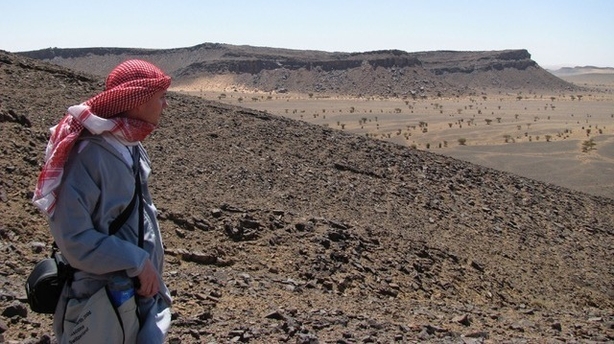New scientific research has shed light on the way in which animals evolved over hundreds of millions of years.
The study, overseen at NUI Galway, shows the most primitive animals would not have had body tissues that could be fossilised, one of the central methods of tracing the evolution of life on the planet.
The issue has captivated researchers for centuries. Most notably, Charles Darwin’s "Origin of the Species" posited the view that the earliest record of animal life was not represented in fossils.
The absence of a clear line of evolutionary evidence later became known as "Darwin’s Dilemma".
Now, research published in the "Palaeogeography, Palaeoclimatology, Palaeoecology" journal suggests soft bodied animals like jellyfish or worms would not have tissues that could be fossilised, regardless of how favourable their environment may have been.
This would mean the oldest fossils do not represent the oldest animals.
Dr Breandán MacGabhann, who conducted the research for his PhD degree, investigated fossils of disc-shaped creatures called 'eldonids', which were collected from the edge of the Sahara Desert in Morocco.

The research involved the analysis of over a tonne of fossil-bearing rocks, which were shipped to Ireland.
Their anatomy and preservation was examined using the latest geochemical techniques to reveal precisely how different parts of these unusual soft-bodied animals had become fossilised.
The findings confirm the earliest animal ancestors most likely evolved over a protracted time, long before more advanced creatures began to become preserved as fossils.
Dr MacGabhann’s ongoing research is looking at how environmental changes millions of years ago may have impacted on the evolution of animal life.
He says that the earliest animals would have been "soft and squishy" and evolved over time to have tougher tissue structures, before then having the ability to develop shells.
His research suggests there was animal life 800 million years ago, while the fossils examined by scientists like Darwin were in the region of 540 million years old.
The hundreds of samples used in the research are each around 15cm in diameter and have been lodged with the National Museum.







